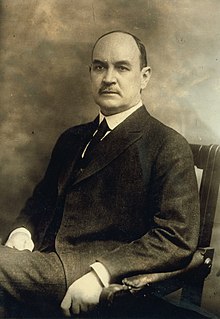A Quote by David F. Houston
The duty of the individual farmer, at this time, is to increase his production, particularly of food crops.
Quote Topics
Related Quotes
Every increase of protective duties is necessarily followed, in the present condition of our country, by an expansion of the currency, which must continue to increase till the increased price of production, caused by the expansion, shall be equal to the duty imposed, when a new tariff will be required.
It is too narrow an understanding of production which confines it merely to the making of things. Production includes not merely the making of things, but the bringing of them to the consumer. The merchant or storekeeper is thus as truly a producer as is the manufacturer, or farmer, and his stock or capital is as much devoted to production as is theirs.
In the old days of America when communities were separated by hundreds of miles, why were they able to thrive? Because if it was harvest time and the farmer was up in the tree picking apples and fell down and broke his leg, everybody pitched in and harvested his crops for him. If somebody got killed by a bear, everybody took care of their family.
Are we going to take the hands of the federal government completely off any effort to adjust the growing of national crops, and go right straight back to the old principle that every farmer is a lord of his own farm and can do anything he wants, raise anything, any old time, in any quantity, and sell any time he wants?
But though a funded debt is not in the first instance, an absolute increase of Capital, or an augmentation of real wealth; yet by serving as a New power in the operation of industry, it has within certain bounds a tendency to increase the real wealth of a Community, in like manner as money borrowed by a thrifty farmer, to be laid out in the improvement of his farm may, in the end, add to his Stock of real riches.






























